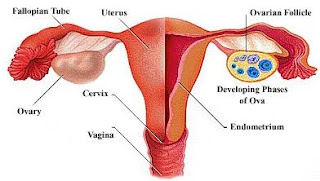ECZEMA SKIN CARE
ECZEMA is a condition wherein patches of skin become inflamed, itchy, cracked, and rough, some types can also cause blisters.
Eczema is a condition that causes inflamed, itchy, cracked, and rough skin, the most common type is atopic DERMATITIS.
TYPES OF ECZEMA
There are at least 11 distinct types of skin condition that produce eczema. In order to develop a rational treatment plan, it is important to distinguish them.
1) ATOPIC DERMATITIS: This health condition has a genetic basis and produces a common type of eczema. Atopic dermatitis tends to begin early in life in those with a predisposition to inhalant allergies, but it probably does not have an allergic basis.
Characteristically, rashes occur on the cheeks, neck, elbow and knee creases, and ankles.
2) IRRITANT DERMATITIS: This occurs when the skin is repeatedly exposed to excessive washing or toxic substances.
3) FUNGAL INFECTIONS: This can produce a pattern identical to many other types of eczema, but the fungus can be visualized with a scraping under the microscope or grown in culture.
MAIN CAUSE OF ECZEMA
Eczema is not cause by any dirtiness, but by exposure to chemicals that react negatively to your skin.
Certain substances or conditions called trigger factors can cause eczema to flare-up: Irritants such as soaps and detergents, wool, skin infections, dry skin, low humidity, heat, sweating or emotional stress. Allergens such as dust mites, pollen, moulds, or foods.
POTENTIAL CAUSES OF ECZEMA
1) Factors that cause the skin to become dry, and more vulnerable to irritants or infection
2) Genetic factors – eczema runs in families
3) Immune system dysfunction causing an unwanted inflammatory response in the skin.
SIGN AND SYMPTOMS OF ECZEMA
1) Itching: This is the worst aspect because it can be upsetting for a young child with eczema.
It also makes the child scratch causing further rawness of the skin and possible infections to develop.
2) A grainy appearance to the skin, caused by tiny fluid-filled blisters just under the skin called vesicles.
3) Redness caused by extra blood flowing through the blood vessels in the skin in the affected area.
4) Children with eczema often have dry, scaly skin. This may be the result of the eczema or it may also be the natural skin type of the family. Dry skin can be a predisposing factor to developing eczema.
HOME CARE
There are several things that people with eczema can do to support skin health and alleviate symptoms.
1) Taking lukewarm baths.
2) Wearing cotton and soft fabrics.
3) Using a humidifier in dry or cold weather.
4) Air drying or gently patting the skin dry with a towel, rather than rubbing the skin dry after bathing or taking a shower.
5) Using a mild soap or a non-soap cleanser when washing.
6) Learning and avoiding individual eczema triggers.
7) keeping fingernails short to prevent scratching from breaking the skin.



Comments
Post a Comment